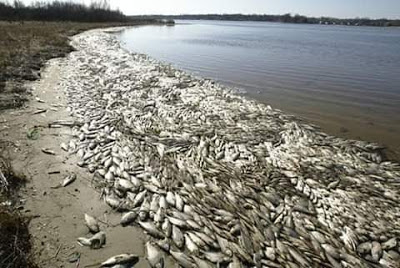Insights & Thoughts: Maritime stakeholders seek greater security considerations in case of dead fishes on Niger Delta coastline
*NIMASA C4i will play crucial security surveillance role
* Need to tackle IUU
In its May 13, 2020 report on findings from scientific investigations where samples of the fish and water
were taken from different locations along the coastline, the National Oil Spill Detection and Response Agency (NOSDRA) expressly called for a closer watch on illegal fishing activities on the nation’s waters, to guard against dumping of toxic waste and invasive and aquatic species.
suggested that the Command, Control, Computer Communication and Information(C4i) operation centre would have helped in detecting perpetrators if it was a vessel that dumped either toxic waste or the dead fishes.
He said: “If they need to do that, they have to pay heavily for those things to be evacuated from their vessel. But, because they have seen that it is easy for them to be alone or virtually alone at sea within the Gulf of Guinea, they just come there, dump and go away.”
She was of the view that some vessel carrying croaker fish may have had a problem and decided to dump the fish. She had also insisted on results from scientific investigations by research institutions including the
institute of oceanography and marine research.
For Captain Fola Ojutalayo “the reliance should be more on findings from scientific investigations,” he says,
expressing concern about where the problem would have come from.
the name.”
vessel is coming from and what activities it is involved in.
would be made to pay damages to Nigeria,” Effedua added.

